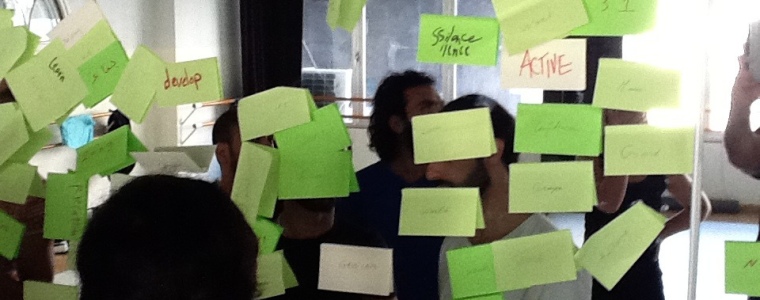Part II
In Part I of this short series, I briefly outlined the features of neoliberalism as it appears as a general ideology and it’s associations with managerialism. That post detailed how the growing conception that all organisations can operate under the same processes and be managed by the same techniques has been a creeping feature of public sector services management in a range of sectors including education. This instalment will pick up where the last post ended, in exploring the connections between that broader context and the direct experiences of staff and students working within contemporary HE institutions. This will directly identify links between ideologically driven marketisation and specific mechanisms of management control.
2.1 Marketisation
An important feature of neoliberalism (in the economic definition) relies on the expectation that market exchange of equal commodities leads to a more efficient distribution of resources (‘goods’) in society. However, as organisations are often dissuaded from operating under fair and equitable exchange some state intervention is necessary in order to facilitate marketisation. In other words, state intervention should not be in order to produce certain outcomes, but rather to encourage individuals and organisations to act more like an ideal marketplace. This represents a notable shift in the location of responsibility for outcomes; from the collective actions of the state (or organisation) towards the individual citizen-worker-consumer. Thus, any failure in the equitable distribution of goods is characterised either as a market failure (the operations do not sufficiently resemble free market exchange) or individual failure (the individual has not correctly identified the utility or value of the product).
If HE was to be modelled as a market, it would not be a single market but a combination of markets for students, for research funds, for workers, for donations and so on. While the most obvious state intervention to remodel HE on a market premise has been the introduction of student fees, the introduction of external evaluation mechanisms such as the National Student Survey (NSS)-linked Teaching Evaluation Framework (TEF) serves to de-differentiate between programs of study and at the same time introduce information which will encourage consumer-students to differentiate between university learning ‘products’ on the basis of price. Similar rankings and propositions, such as the ranking of university undergraduate programmes by graduate salaries, are further examples of attempts to ‘marketise’ HE through encouraging student-consumers to select their preferred product in relation to it’s likely performance as an investment in their future career.
2.2 Surveillance and Responsibilisation
This surveillance of past graduates and accompanying idea that the student-consumer is responsible through their ‘free’ choice of university program for their future success is an extension of the neoliberal ideology through an increased responsibilisation of the individual. Such a point of view is not only a particular way of viewing our actions in the world, but it seems may also be a damaging one as indicated by the increasing incidence of mental health struggles experienced by students at university and in an increasingly pressured examination-driven education environment at younger ages. The supposed meritocratic neutrality of these measuring mechanisms only adds to the weight of responsibility felt by the individual in determining their own future success. These student experiences are matched by those of would-be academic workers in the HE labour market who are subject to extensive mechanisms of surveillance concentrated on individual performance, despite many outcomes being linked to factors dictated by choices on institutional or project resource allocation (such as class sizes, length of research projects et cetera). Gonzales, Martinez & Ordu (2014) explore this in relation to the concept of ‘academic capitalism’ in a US university to show how this manifests in everyday work pressure whereby individual academics are ‘engulfed’ by work time infiltrating all aspects of life and a competitive drive for ‘hyperprofessionalism’. That one of their participants is quoted these work conditions and expectations as ‘inhumane’ perhaps highlights why the similar stress and sickness epidemic is prevalent in contemporary UK HE institutions (We are Higher Education 2018)
Uncertain yet perpetual surveillance is a preferred neoliberal technique of control in organisation precisely because it emphasises responsibilisation. While management in the form of supervision of work indicates responsibility for outcomes rests with the organisation and its techniques or strategies, management by surveillance instead encourages the individual to bear responsibility for outcomes. The use of short-term or insecure work contracts further communicates this uncertainty and individual responsibility, as rather than managing performance, the organisation can instead aim to substitute any individual considered insufficient with an alternative worker. Responsibility thus becomes one-sided with the employee bearing the obligation and responsibility for outputs and the organisation concentrated on monitoring rather than active management.
2.3 Individualization and the human resource
While many aspects of work performance are undoubtedly linked to individual strengths and attributes, the strength of collective effort is often more than the sum of its parts. By coming together in organisations rather than working as individuals, the difficulties faced in periods of being less able to work through sickness or other challenges are a burden shared in the knowledge that such events are a risk faced by all individuals. However, a focus on the human ‘resource’ as an individual measured unit, encouraged by neoliberal thinking, obscures the benefits of collective endeavour.
Individualization is a concept tied to neoliberalisation in that it describes the increasing responsibilisation of individuals as the authors of their own life narrative (see Beck & Beck-Gernsheim 2002). In sum, the individual is held to be responsible for their outcomes in life over other factors such as luck or prevalence/lack of opportunities afforded through regional development, wealth, economic and social change, social support networks and so on. This process is highly evident in the assumptions behind the majority of evaluative frameworks applied in HE, and while there are plenty of examples among the surveillance of academic workers, this is also evident in the uncertain contractual circumstances often faced by workers in support services (where workers are often held to be individually responsible for re-aligning their skills with new roles, to undertake training in their own time and so on).
In the contracting out of services and the reduction of facilities for staff (for example, the closure of common rooms previously available to cleaning and maintenance staff where they could store personal possessions when on shift and socialise during breaks), workers in HE have been increasingly modelled as functionaries towards whom the university has no responsibility beyond their working hours, and this same perspective is the one which acts as the foundation for the current dispute over pensions.
2.3 Organizational mimesis
Given that there has been substantial media coverage of Vice-Chancellor’s salaries and expenses and other ways in which top managerial staff in organisations affiliated with HE have been seen to profit substantially as individuals within this (public) sector I have curtailed the lengthy segment which I had originally intended to write here (see resources below and in Part I for further reading). Suffice to say that the pursuit of efficiency in HE through techniques appropriated from managerialism in the private sector including responsibilisation, technologies of surveillance, outsourcing, zero-hours or short-term contracts have served to justify the expansion of administrative and managerial roles.
The case of pensions relates specifically to comparison with the private sector, given that in the majority of private sector occupations the availability of defined benefit pension funds has been dramatically reduced as the risk of investment performance for savings has been increasingly shifted to individuals. Due to the increased tendency in recent years for individuals to shift occupations fairly frequently, the move towards an individual focus on pension provision on the surface makes sense (for reasons of transferability). However, this shift results clearly in higher risk not only for individuals but also for the state, in a climate where increased living costs (primarily in housing, but also in loan repayments) is building a generation of workers with few capital assets on which to rely in retirement. The pensions issue itself is detailed and complex (see Grady & X for further details), and the governance of UUK fund management has also come under scrutiny in the course of the dispute.
Pursuit of financial efficiency and a market-driven consumer focus has encouraged universities to more closely mimic commercial institutions (and each other) in a way which is now being questioned by universities themselves following the UCU 2018 Pensions dispute (Toop 2018). Proposals regarding the ways in which these management methods, priorities and structures are undermining the democratic functions of universities and their accountability to the public as sources of public good rather than as providers of degree-products are being tabled and discussed and in this regard there is a drive towards revisiting the obligations and responsibilities a university has to it’s community including it’s students and employees. It remains to be seen whether this will result in a shift away from CEO-style vice-chancellors and a race to the bottom in the casualisation of employment.
In the final installment in this series, I will outline some of the proposals and actions that have been raised in the course of the 2018 UCU Pension dispute, with the aim of resisting the production of students and employees as neoliberalised subjects.
Resources
Academic Articles
Joel D Aberbach and Tom Christensen (2007) Citizens and Consumers, Public Management Review, 7:2, 225-246, DOI: 10.1080/14719030500091319
Louise Archer (2008) “The new neoliberal subjects? Young/er academics’ constructions of professional identity”, Journal of Education Policy, 23:3, 265-285, DOI: 10.1080/02680930701754047
Stephen J. Ball (2009) Privatising education, privatising education policy, privatising educational research: network governance and the ‘competition state’, Journal of Education Policy, 24:1, 83-99,DOI: 10.1080/02680930802419474
Stephen J. Ball (2012) The reluctant state and the beginning of the end of state education, Journal of Educational Administration and History, 44:2, 89-103, DOI: 10.1080/00220620.2012.658764
Taylor C. Boas and Jordan Gans-Morse. (2009). Neoliberalism: From new liberal philosophy to anti-liberal slogan. Studies in Comparative International Development, 44(2), 137–161.
Roger Burrows. (2012). Living with the h-index? Metric assemblages in the contemporary Academy. The Sociological Review, 6(2), 355–372.
Bronwyn Davies and Peter Bansel (2010). Governmentality and Academic Work:Shaping the hearts and minds of academic workers. Journal of Curriculum Theorizing 26(3) pp5-20
Rosemary Deem, Sam Hillyard and Mike Reed (2007) Knowledge, Higher Education, and the New Managerialism: The Changing Management of UK Universities Oxford University Press https://books.google.co.uk/books?id=45cXWj4M0acC&printsec=frontcover
Willard F Enteman (2007) “Managerialism and the Transformation of the Academy” Philosophy of Management 6(1):5-16 https://link.springer.com/article/10.5840/pom2007612
Heather Fraser and Nik Taylor (2016) Neoliberalization, Universities and the Public Intellectual Palgrave Macmillan London
Henry Giroux (2002) Neoliberalism, Corporate Culture, and the Promise of Higher Education: The University as a Democratic Public Sphere. Harvard Educational Review, Vol. 72, No. 4, pp. 425-464. https://doi.org/10.17763/haer.72.4.0515nr62324n71p1
Leslie D. Gonzales, E.Martinez and C. Ordu (2014). Exploring faculty experiences in a striving university through the lens of academic capitalism. Studies in Higher Education, 39(7), 1097–1115.
Leslie D. Gonzales and Anne-Marie Núñez. (2014). The Ranking Regime and the Production of Knowledge: Implications for Academia. Education Policy Analysis Archives, 22(31). http://dx.doi.org/10.14507/epaa.v22n31.2014
Thomas Klikauer (2013) “What is Managerialism?” Critical Sociology 41 (7-8) pp1103-1119 https://doi.org/10.1177/0896920513501351
Chris Lorenz, “If You’re So Smart, Why Are You under Surveillance? Universities, Neoliberalism, and New Public Management,” Critical Inquiry 38, no. 3 (Spring 2012): 599-629.
https://doi.org/10.1086/664553
Kathleen Lynch (2006) “Neo-liberalisation and marketisation: The implications for Higher Education” European Educational Research Journal 5 (1): 1-17 https://doi.org/10.2304/eerj.2006.5.1.1
Mark Olssen and Michael A. Peters (2007) Neoliberalism, higher education and the knowledge economy: from the free market to knowledge capitalism, Journal of Education Policy, 20:3, 313-345, DOI: 10.1080/02680930500108718
Hugo Radice (2013) “How We Got Here: UK Higher Education under Neoliberalism” ACME: An International Journal for Critical Geographies 12(2) http://142.207.145.31/index.php/acme/article/view/969 [NB A radical publication and not all work is blind-reviewed]
Jeff Rose and Dan Dustin (2009). The neoliberal assault on the public university: The case of recreation, park, and leisure research. Leisure Sciences, 31(4), 397–402.
Cris Shore (2010). Beyond the multiversity: Neoliberalism and the rise of the schizophrenic university. Social Anthropology, 18(1), 15–29
Sandra Smeltzer and Alison Hearn (2014) Student Rights in an Age of Austerity? ‘Security’, Freedom of Expression and the Neoliberal University, Social Movement Studies, 14:3, 352-358, DOI: 10.1080/14742837.2014.945077
Philip A. Woods, Glenys J. Woods & Helen Gunter (2007) Academy schools and entrepreneurialism in education, Journal of Education Policy, 22:2, 237-259, DOI: 10.1080/02680930601158984
News, Magazine articles and social media publications
Jana Bacevic (March 14th 2018) Life or Business as Usual? The lessons of the USS strike (personal blog) Available online at: https://janabacevic.net/2018/03/14/life-or-business-as-usual-lessons-of-the-uss-strike/
Simon Baker (March 12 2018) “Admin and management staff costs rising the fastest, suggest data” Times Higher Education https://www.timeshighereducation.com/news/admin-and-management-staff-costs-rising-fastest-suggest-data
Jennie Bristow (Mar 5th 2018) “This strike reminds us what universities are for” Spiked! http://www.spiked-online.com/newsite/article/this-strike-reminds-us-what-universities-are-for/21184?utm_content=buffer3b3c4&utm_medium=social&utm_source=twitter.com&utm_campaign=buffer#.WqFABijFJaR
Martin Henegan, Jo Grady & Liam Foster “Women to be hardest hit by proposed university pension scheme changes” UCU Sheffield blog http://ucu.group.shef.ac.uk/women-to-be-hardest-hit-by-proposed-university-pension-scheme-changes/
The Guardian (12 March 2018) “Accountability and UK University Governance” Letters https://www.theguardian.com/education/2018/mar/12/accountability-and-uk-university-governance?CMP=share_btn_tw
Sophie Inge (March 6th 2018) “UK Universities rely on casual staff ‘fur up to half of teaching’ Times Higher Education https://www.timeshighereducation.com/news/uk-universities-rely-casual-staff-half-teaching
Katy Sian (March 14th 2018) “We’re drawing the line’: Our fight against university marketization is about more than pensions” Ceasefire Magazine https://ceasefiremagazine.co.uk/were-drawing-line-fight-university-marketization-pensions/
Ned Simons (Feb 28th 2018) “Vice-Chancellors Accused Of Pocketing An ‘Eye-Watering’ 227% Increase In Financial Benefits Since 2010” Huffington Post http://www.huffingtonpost.co.uk/entry/vice-chancellors-have-pocketed-an-eye-watering-227-increase-in-financial-benefits-since-2010_uk_5a96befce4b0e6a523039e82?ncid=tweetlnkukhpmg00000001
Aisha Thomas-Smith (Mar 13th 2018) “Why are University Lecturers on Strike?” Weekly Economics Podcast https://soundcloud.com/weeklyeconomicspodcast/why-are-university-lecturers-on-strike (see 12:45 onwards for discussion of marketisation).
Stephen Toope (16th March 2018) “The future of UK Universities” Vice-Chancellor’s Blog, University of Cambridge website Available at: http://www.cam.ac.uk/news/the-future-of-uk-universities-vice-chancellors-blog
UCU (Mar 6th 2018) Edinburgh University under fire over plans to try and break pensions strike with out of date recorded lectures https://www.ucu.org.uk/article/9386/Edinburgh-University-under-fire-over-plans-to-try-and-break-pensions-strike-with-out-of-date-recorded-lectures#.Wp5-DX9TSNw.twitter
We are Higher Education (Feb 17th 2018 ) The staff stress and sickness epidemic occurring in Universities across the UK https://wearehighereducation.org/2018/02/17/is-the-higher-education-sector-in-crisis-the-staff-stress-and-sickness-epidemic-occurring-in-universities-across-the-uk/


